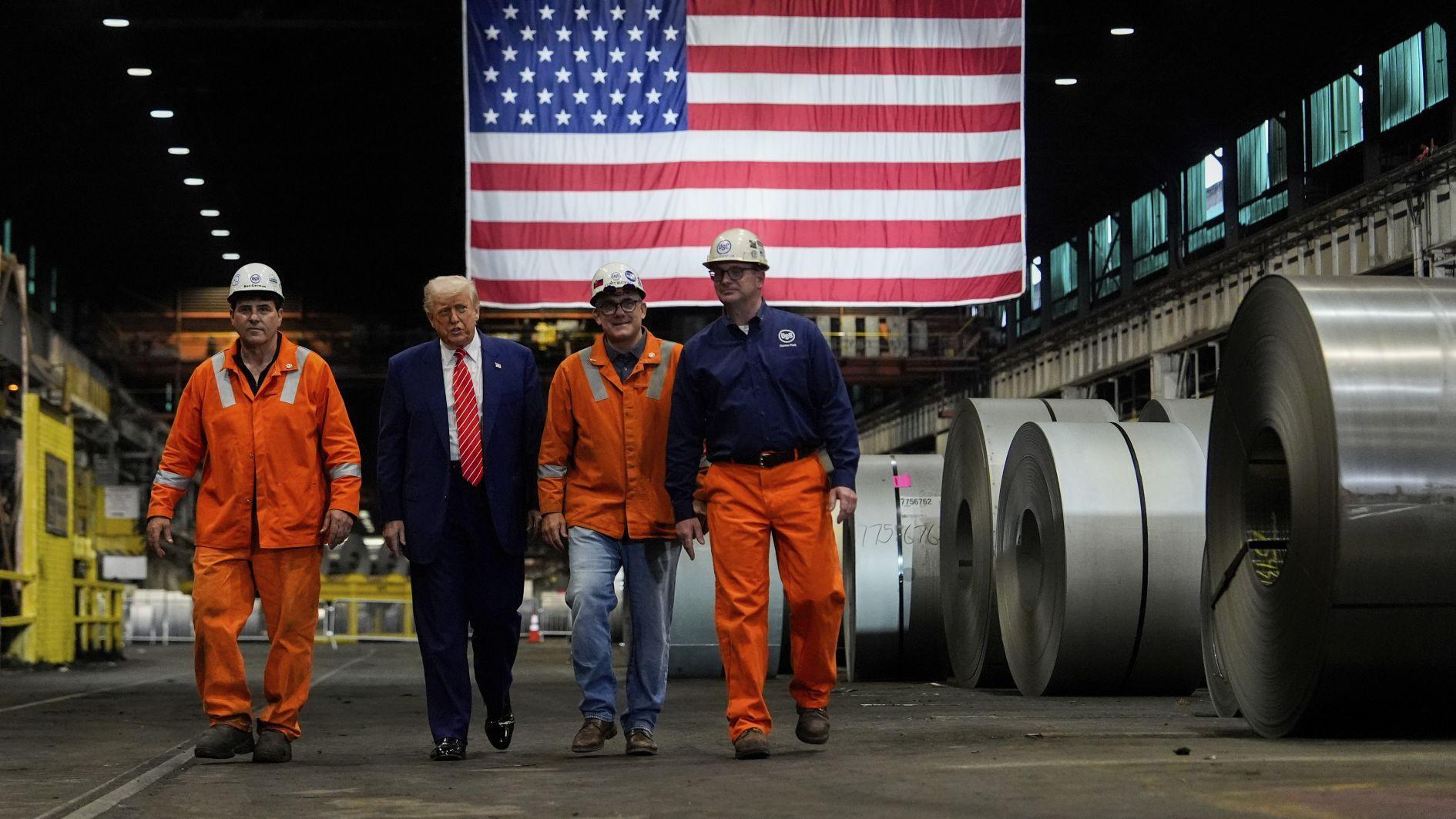
U.S. President Donald Trump's announcement that he would double steel and aluminum import tariffs to 50 percent from next week has drawn ire from the European Union in the latest salvo in his trade wars aimed at protecting domestic industries.
The EU warned it was "prepared" to retaliate against the latest tariffs, adding the sudden move "undermines ongoing efforts to reach a negotiated solution" between the bloc and the United States.
"If no mutually acceptable solution is reached, both existing and additional EU measures will automatically take effect on 14 July, or earlier," a spokesperson for the bloc said.
"We're going to bring it from 25 percent to 50 percent, the tariffs on steel into the United States of America," Trump said on May 30 while addressing workers at a U.S. Steel plant in Pennsylvania.
"Nobody's going to get around that," he added in the speech before blue-collar workers in the battleground state that helped deliver his election victory last year.
Shortly after, Trump wrote in a Truth Social post that the elevated rate would also apply to aluminum, with the new tariffs "effective Wednesday, June 4th."
Since returning to the presidency in January, Trump has imposed sweeping tariffs on allies and adversaries alike in moves that have rocked the world trade order and roiled financial markets.
The tariffs had seen a brief legal setback earlier this week when a court ruled Trump had overstepped his authority, but an appellate court on May 29 said the tariffs could continue while the litigation moves forward.
Trump has also issued sector-specific levies that affect goods such as automobiles.
On May 30, he defended his trade policies, arguing that tariffs helped protect U.S. industry.
He added that the steel facility he was speaking in would not exist if he had not also imposed duties on metals imports during his first administration.
Trump’s doubling of tariffs on foreign steel and aluminum could hit Americans in an unexpected place: grocery aisles.
The announcement a staggering 50 percent levy on those imports stoked fear that big-ticket purchases from cars to washing machines to houses could see major price increases. But those metals are so ubiquitous in packaging, they’re likely to pack a punch across consumer products from soup to nuts.
“Rising grocery prices would be part of the ripple effects,” says Usha Haley, an expert on trade and professor at Wichita State University, who added that the tariffs could raise costs across industries and further strain ties with allies “without aiding a long-term U.S. manufacturing revival.”